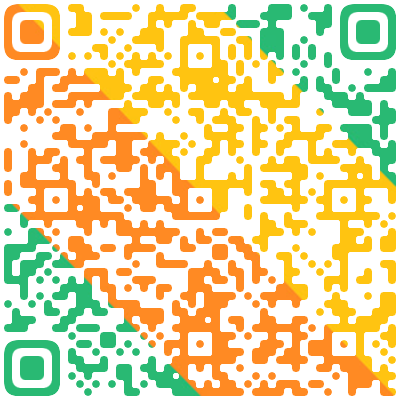Passage Two Questions 26 to 30 are based on the following passage.
Smart phones do many things these days: make and receive calls, send e-mails, take photos and videos. But one thing they can do that phone companies don’t advertise is keep a secret watch on you. As long as you don't leave home without your phone, that handy gadget keeps a record of everywhere you go—a record the government can then get from your telephone company. When you carry a cell phone, it is constantly sending signals about where you are. It signals the nearby cell-phone towers about every seven seconds so it can be ready to make and receive calls. When it does, the phone is also telling the company that owns the towers where you are at that moment--data the company then stores away. There is also a second kind of locational data that phone companies have, thanks to a unit in most smart phones now for locating positions. This is even more accurate--unlike the towers, which can only tell a general area where you may be, this unit can often reveal exactly where you are at any given moment within a matter of meters. The American government's position is that it should be able to get most of this data if it decides it is relevant to an investigation, with no need for a search permit. If the government needs a permit, it would have to show a judge evidence that there was probable cause to believe that the cell-phone user committed a crime. Without this requirement, the government can get locational data pretty much anytime it wants. The law is unclear about how easy it should be for the government to get its hands on this locational data. A federal court pronounced last week that in some cases the government may need a search permit. That' s a step forward, but it's not good enough. Some hearings on this issue are being held. It is time for Congress to act. It should make clear that information from cell phones is deeply private, and that without a search permit the government cannot have it.
Smart phones do many things these days: make and receive calls, send e-mails, take photos and videos. But one thing they can do that phone companies don’t advertise is keep a secret watch on you. As long as you don't leave home without your phone, that handy gadget keeps a record of everywhere you go—a record the government can then get from your telephone company. When you carry a cell phone, it is constantly sending signals about where you are. It signals the nearby cell-phone towers about every seven seconds so it can be ready to make and receive calls. When it does, the phone is also telling the company that owns the towers where you are at that moment--data the company then stores away. There is also a second kind of locational data that phone companies have, thanks to a unit in most smart phones now for locating positions. This is even more accurate--unlike the towers, which can only tell a general area where you may be, this unit can often reveal exactly where you are at any given moment within a matter of meters. The American government's position is that it should be able to get most of this data if it decides it is relevant to an investigation, with no need for a search permit. If the government needs a permit, it would have to show a judge evidence that there was probable cause to believe that the cell-phone user committed a crime. Without this requirement, the government can get locational data pretty much anytime it wants. The law is unclear about how easy it should be for the government to get its hands on this locational data. A federal court pronounced last week that in some cases the government may need a search permit. That' s a step forward, but it's not good enough. Some hearings on this issue are being held. It is time for Congress to act. It should make clear that information from cell phones is deeply private, and that without a search permit the government cannot have it.
The word "gadget"(para. 1) probably refers to().
A. a computer
B. a camera
C. a cell phone
D. a recorder
查看答案
热门试题
若有定义:int a[3][4];,不能表示数组元素a[1][1]: $(&a[1][1])|(*(a+1)[1])|*(a+5)|*(a[1]+1)
{-1,1}={(-1,1)}。
PL[1] = [1, 1, 1] PL[1] = PL[1] + [1, 1, *] 执行上述运算后,PL[1]中的i,j,k分为为____、____、_____。
已知某电路的真值表如下,该电路的逻辑表达式为( )A B C Y A B C Y 0 0 0 0 1 0 0 0 0 0 1 1 1 0 1 1 0 1 0 0 1 1 0 1 0 1 1 1 1 1 1 1
已知Eng(1)=90,Math(1)=80,T(1)=2,Total(1)=(Eng(1)+Math(1))/T(1),则Total(1)=()。
1/(1+2)+1/(1+2+3)+1/(1+2+3+4)+……+1/(1+2+3+……+50)=()
向量组α1=(1,1,1,1)",α2=(1,1,1,0)",α3=(1,k,0,0),α4=(1,0,0,0)线性无关,则( )。
-1/7,1/7,1/8,-1/4,-1/9,1/3,1/10,()
先计算,再想一想怎样算得比较快。 1/3-1/4= 1/2+1/5=1/6-1/7= 1/5+1/6=1/7-1/8= 1/8+1/9=1/2-1/3= 1/9+1/10=19/90
LSP1+1/1:1保护是()层的保护,线路1+1/1:1保护是()层的保护。
下列属于即付年金终值系数的指标有: [(1+i)^n-1]/i*(1+i)|[1-(1+i)^-n]/i*(1+i)|[1-(1+i)^-n]/i*(1+i)^(n+1)|{[(1+i)^(n+1)-1]/i}-1|{[1-(1+i)^-(n-1)]/i}+1
表达式 [1, 2] * 2 的值为_________: 1,2,1,2|[1, 2, 1, 2]|[1, 2], [1, 2]|[[1, 2], [1, 2]]
1+1*1*0+1=?
1,0,-1,-1,( ),1
设有向量组α(→)1=(1,-1,1,0),α(→)2=(1,2,-1,0),α(→)3=(0,1,1,1),α(→)4=(2,2,1,1),则以下命题正确的是( )。
1-1×(0÷1)+1÷1的的数是()
short s1 = 1; s1 = s1 + 1;有什么错? short s1 = 1; s1 +=1;有什么错?
求向量组a1=(1,1,1,k),a2=(1,1,k,1),a3=(1,2,1,1)的秩和一个极大无关组
利用施密特正交化方法把向量组a1=(1,0,-1,1), a2=(1,-1,0,1), a3=(-1,1,1,0)正交化
(1+14)(1+142)(1+143)...(1+1415)(1+15)(1+152)(1+153)...(1+1514)=( )



